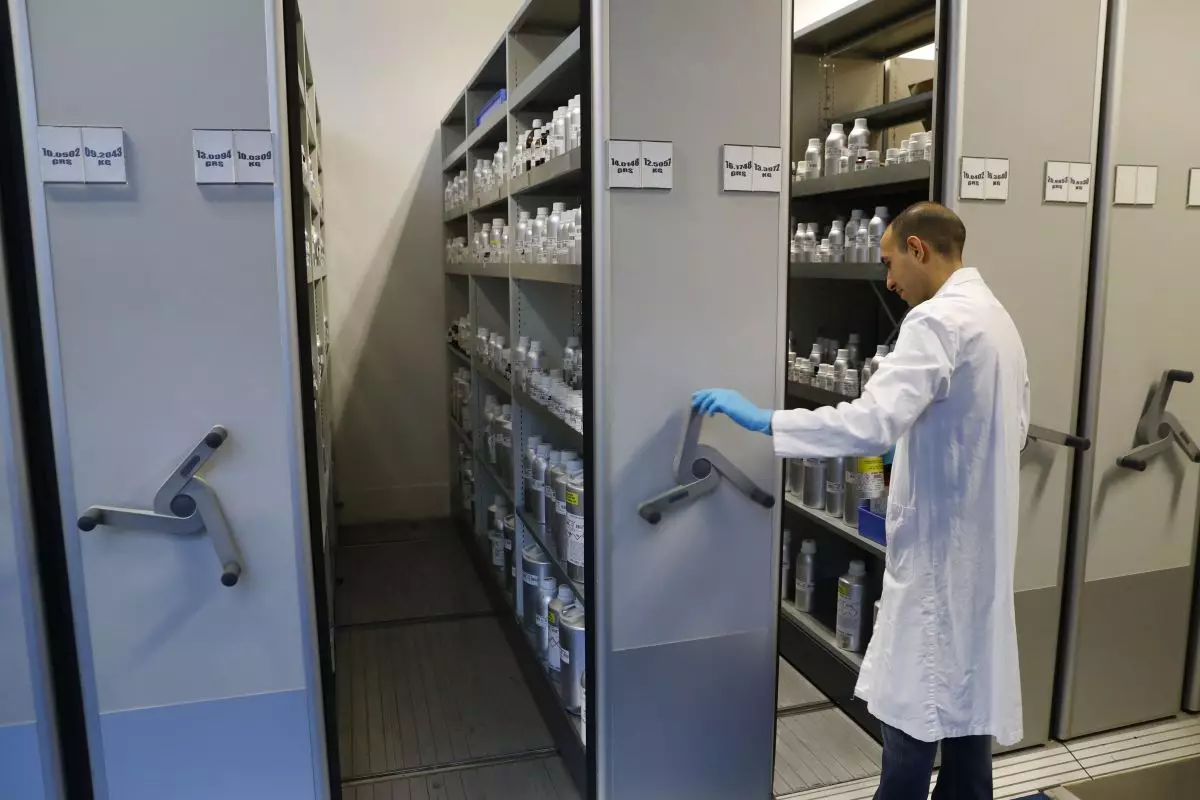The intersection of artificial intelligence and the sciences presents a formidable frontier, especially in fields that involve rigorous experimentation and development. The rise of generative AI tools offers researchers a faster, more efficient pathway to tackle the complexities inherent in science. A notable example of this trend can be found in the pioneering work of Albert Invent, a startup that focuses on enhancing chemical research through AI technology. Securing $22.5 million in a Series A funding round signifies the growing recognition of the potential benefits this technology can bring to the chemical industry.
At the core of Albert Invent’s mission is its AI platform, known as Albert Breakthrough, which exploits data sourced from past chemical experiments. The platform is designed to help chemists analyze molecular-level data, revolutionizing the traditional processes involved in chemical formulation. The startup’s origins can be traced back to its founders’ experience in the 3D printing sector, where they gained valuable insights into materials science.
This unique background has allowed Albert Invent to create an AI model that not only learns from historical chemical data but also reshapes how new chemicals can be developed. By leveraging vast amounts of structured data, the platform aspires to yield faster and more effective product development for chemical companies. This shift in approach is particularly significant in a field that has long relied on incremental advancements through trial and error.
The sizeable investment led by Coatue further reinforces the potential of Albert Invent’s technology. The financial backing underscores the belief that this platform can provide substantial competitive advantages to chemical companies. Among its clientele are notable industry players, including Chemours and Henkel, which validate the platform’s applicability and effectiveness in real-world scenarios.
Through Albert Breakthrough, companies are expected to enhance their research efficiency significantly. The ability to generate real-time toxicology predictions signifies a transitional move away from conventional models that have limited accuracy and speed. Nick Talken, co-founder and CEO, articulates a vision of enabling chemical companies to unlock innovative solutions to pressing global challenges, such as sustainability concerns and advancements in personalized medicine.
One of the special aspects of Albert Invent’s offering is the foundational models that underpin Albert Breakthrough. With training on over 15 million chemical structures, the company has synthesized a proprietary database that emphasizes domain-specific knowledge, elevating the depth of its chemical insights. In an industry often hampered by reliance on generalized information, the startup takes pride in its sector-specific focus.
Chatbots and agent networks may utilize external foundational models like OpenAI’s, but in critical contexts regarding chemical advancements, July’s leadership emphasizes the custom-built nature of their models. Such dedication to creating tailored solutions reflects an understanding that generalized AI applications may not meet the intricate demands of chemical research.
Albert Invent’s inception can be viewed as a product of its founders’ rich history in the field. Ken Kisner, Talken’s co-founder, previously led Molecule Corp and fostered an environment conducive to innovation in chemical materials. Following a successful exit to Henkel Corporation, they transitioned to incubating Albert Invent at Henkel, where real-world challenges in chemical formulation inspired the creation of the platform.
Spinning off from a longstanding multinational company has granted Albert Invent both the knowledge and the agility to navigate the fast-evolving technological landscape. This strategic launch has positioned the startup to redefine how chemistry-based product development is approached.
As Albert Invent continues to expand, its journey serves not only as an inspiring case study but also as a signal of the transformative power AI can wield in scientific domains. Early endorsements from industry leaders, who have integrated Albert Breakthrough into their operations, highlight the platform’s value proposition.
With ongoing challenges in environmental sustainability and the need for rapid innovation, platforms like Albert Breakthrough are strategically important for the future of chemical research. As more businesses embrace AI-enhanced methodologies, the landscape of product development in chemistry is poised for a remarkable transformation, facilitated by the innovative strides made by pioneers such as Albert Invent.

